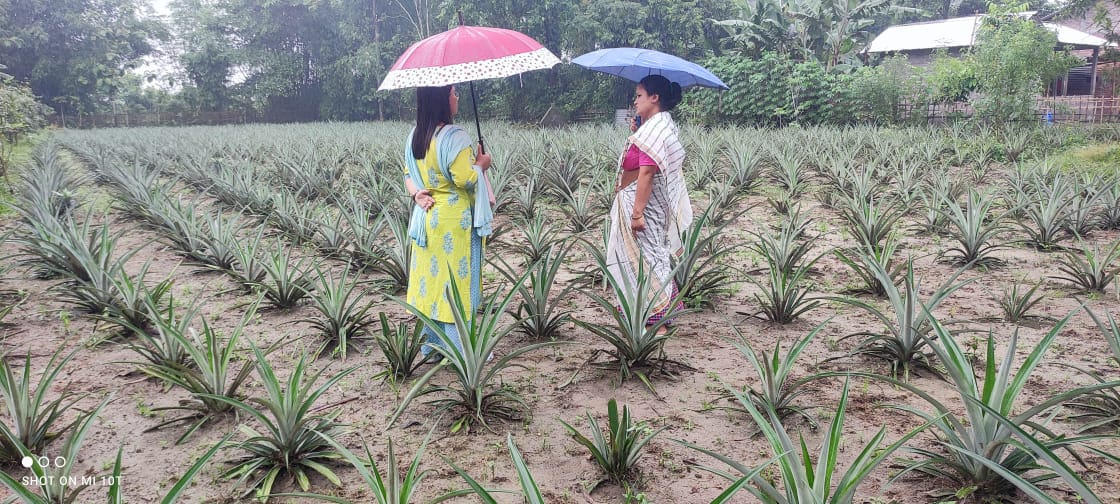Climate Change

Our climate change interventions deliver tangible results through these strategic pathways:

Knowledge Dissemination and Capacity Building
Our dedicated workshops on “Climate Change, Climate Resilient Agriculture and Adaptation Techniques” in Dibrugarh exemplify our commitment to building informed communities. By translating complex climate science into actionable strategies for farmers, we equip them with the knowledge needed to adapt agricultural practices to changing weather patterns.
Climate-Resilient Crop Diversification
Through our FPO network, we have successfully promoted traditional climate-hardy crops. The Uttarporia Millet Farmer Producer Company in Lakhimpur demonstrates this approach, cultivating foxtail millet across 150 bighas using natural farming methods. These indigenous crops require less water, withstand temperature variations, and provide nutritional security despite climate uncertainties.


Natural Farming Systems
We have transitioned multiple FPOs to natural farming techniques that build soil health while reducing greenhouse gas emissions. The Rikseng Agro Producer Company’s black rice cultivation in Dhemaji and Bikachsi Agro Producer Company’s beroin rice production in Cachar illustrate how traditional, low-carbon agricultural practices can be economically viable while enhancing environmental sustainability.
Regional Adaptation Strategies
Through our eight regional offices across Northeast India, we implement climate adaptation strategies tailored to local ecological conditions. From flood-resilient agriculture in Assam’s riverine areas to sustainable horticultural practices in Arunachal’s highlands, our interventions address region-specific climate vulnerabilities.


Cross-Sectoral Climate Integration
We mainstream climate considerations across all development sectors, including our handloom cluster in Dibrugarh and dairy cluster in Sivasagar, ensuring that livelihood diversification reduces dependence on climate-vulnerable activities.
Community-Based Monitoring Systems
Within our producer organizations, we establish participatory monitoring mechanisms that track climate impacts and adaptation outcomes, enabling continuous learning and strategy refinement.

